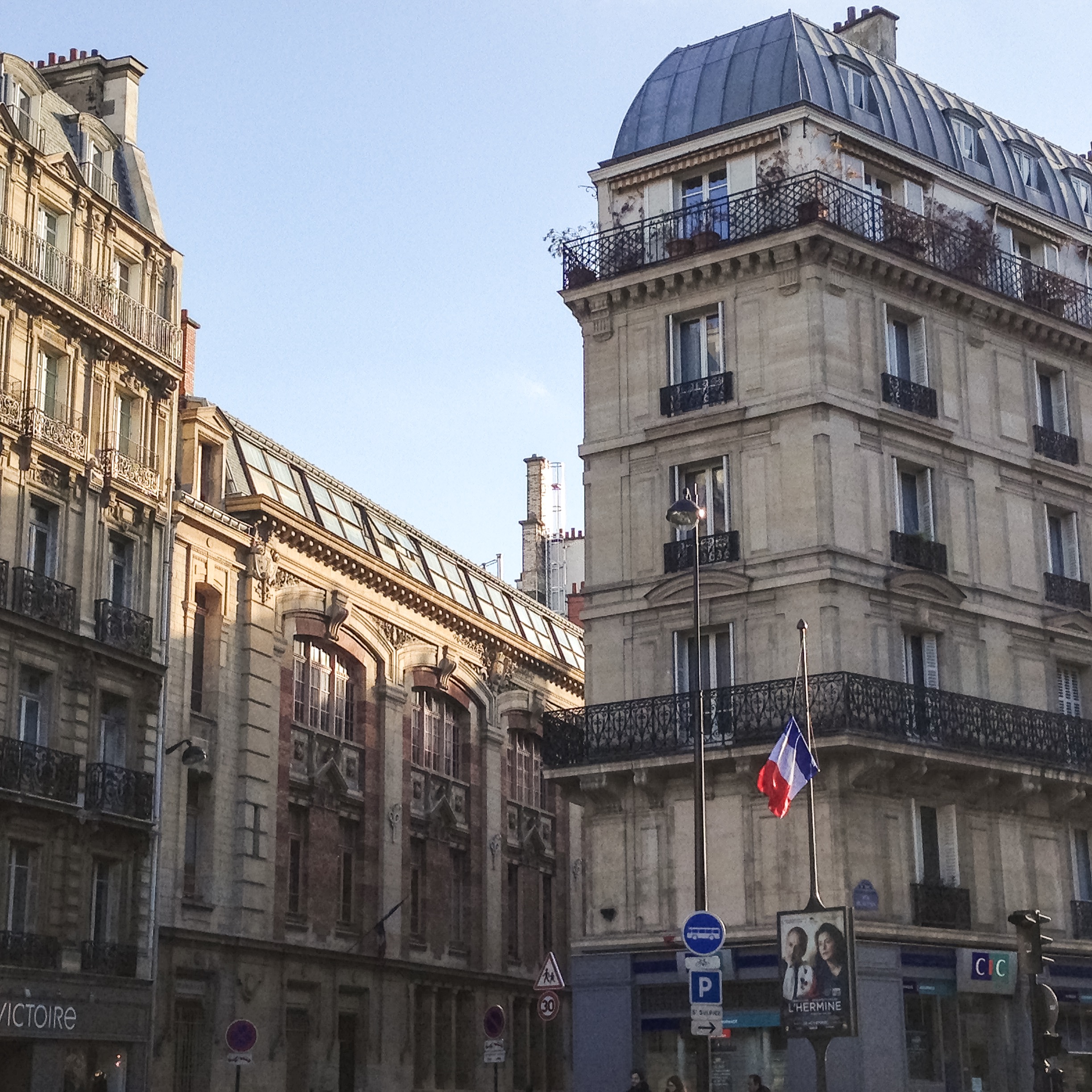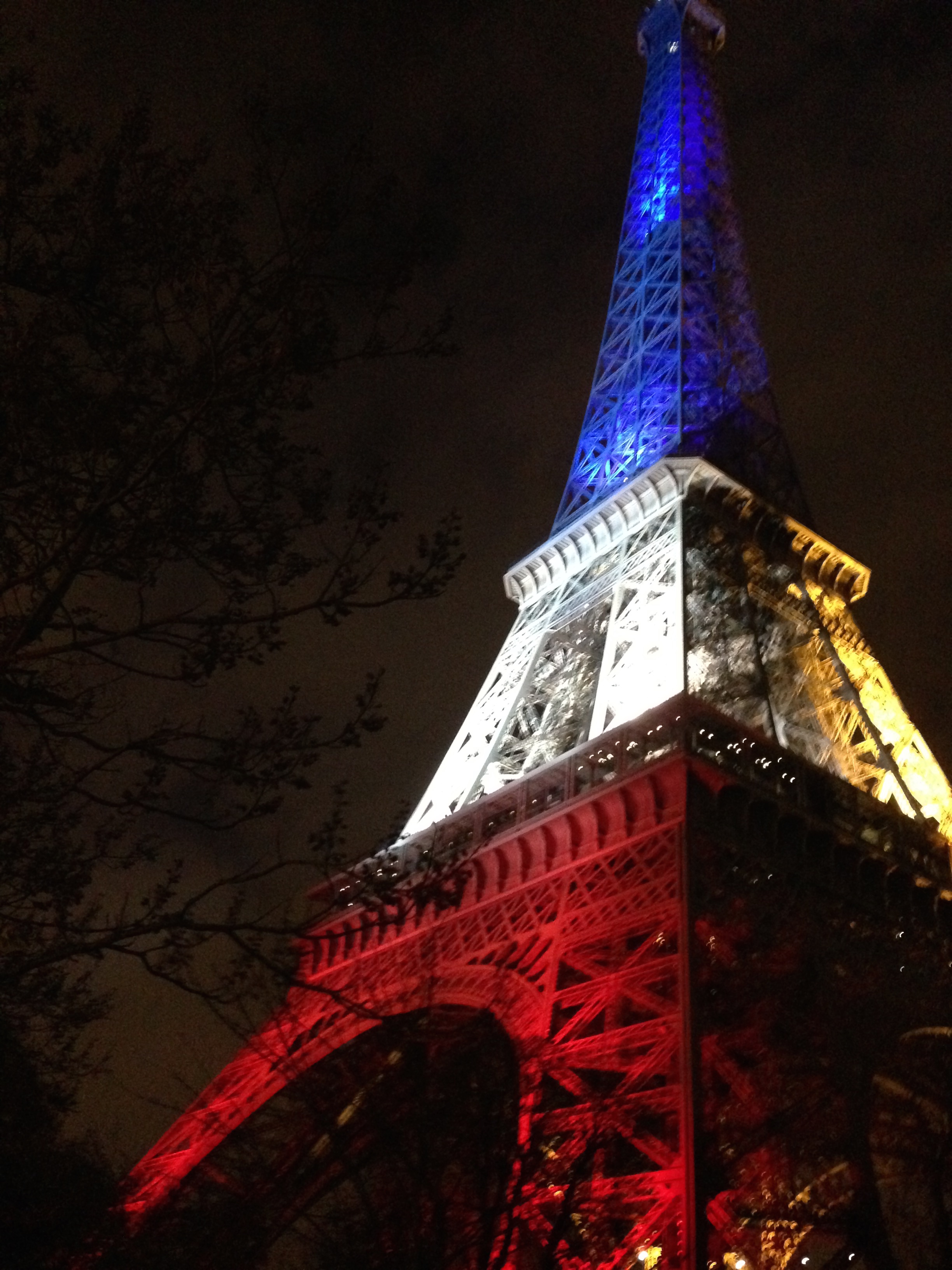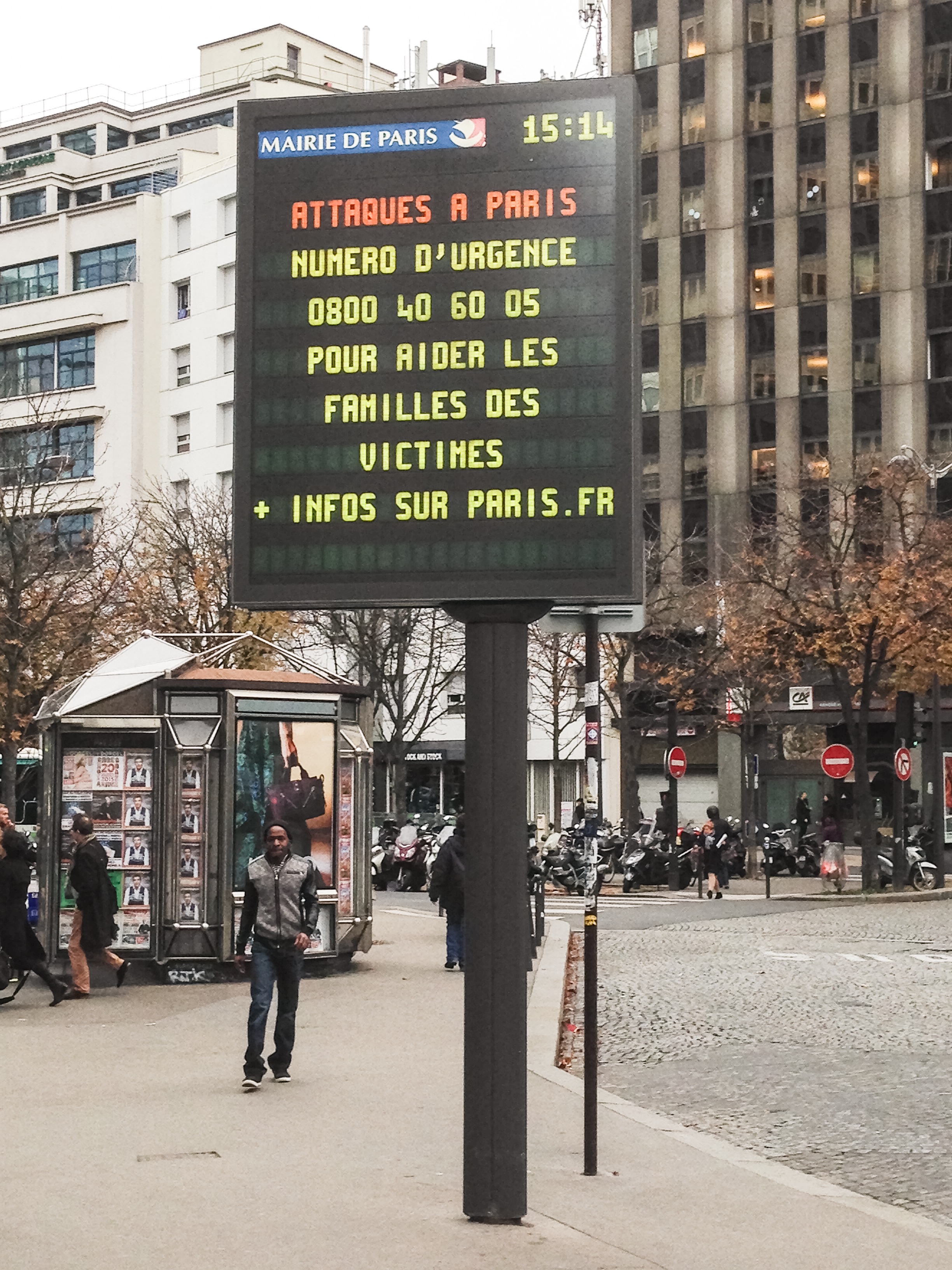To say that this week in Paris has been difficult does not suffice. But isn't it too often the case that words are not adequate after a tragedy?
When the attacks occurred Friday night, Nov. 13, I was at the movies with friends. I had just returned when my phone rang. That's when I first heard about the attacks. Thankful to be safe inside, I, like most Parisians, followed the updates online with a heavy heart and waited for clarity and direction. Were the attacks over? And what exactly had happened?
Saturday morning was rather surreal.The city seemed shocked and uncertain what to do. The advice of the government was to stay in, to stay safe and to limit movement. The city generally followed suit. Not many details were being released about what had occurred, and fear and uncertainty dominated. Taxis, usually a relatively rare sight in Paris, filled the streets to accommodate those who were venturing out but were too afraid to take the metros.
After stopping in its tracks, the city began slowly to press forward on Sunday. I was comforted by the sight of families playing soccer outside of the Hôtel de Ville in the 15th arrondissement, and it was clear that Parisians were finding solace in each other and comfort in being out and about together. Paris' desire to stand in solidarity and to move forward was apparent.
On Monday morning, the first details about the victims were released, and at noon, the city observed a moment of silence in their honor. I was at one of my favorite bookstores at the time, and before the observed silence, the managers announced that one of their employees had been killed. I later saw a sign at my local organic grocery store saying that one of the young workers there also had died in the attacks. Paris, usually so energetic, was somber as a whole.

As the day progressed, overall there seemed to be less fear of physical danger. Most stores were now open again, though the majority of grocery and retail stores had begun implementing bag and coat checks and using metal detectors at the entries. We were told to carry IDs with us at all times.
The security in the city has certainly increased, but since Tuesday, the general sentiment has been that we must keep living — being more vigilant, of course. The city has begun to churn back to life. Museums, libraries, nurseries, and schools reopened on Tuesday, and for the first time the city halls in the 10th and 11th arrondissements, where the attacks took place, began providing services for families and witnesses. I started to take comfort in Paris' choice to stand strong. For me, seeing the Eiffel Tower lit up again this week, and then seeing images of monuments around the world illuminated with the colors of the French flag, gave me courage. Paris' motto, "She is tossed by the waves, but does not sink," suggests this is indeed a strong city.

There are still concerns. On Monday morning, we received word that police had carried out 168 raids overnight throughout France in connection with Friday's events, arresting 23 suspects and seizing 31 firearms. Then, after a quiet Tuesday, Wednesday morning arrived with warnings that a raid and shootout were in progress in the St. Denis suburb of Paris. Following the raid, we learned that police had captured seven suspected militants and killed at least two more. It appeared that the mastermind of the attacks had been killed.
There are also concerns about a growing fear of outsiders and a particular stereotyping of Muslims. To counteract this sentiment, I have seen the phrase "pas d'amalgame" — loosely translated as "no more confusion," or "no stereotyping" — posted around the city to emphasize that these attacks should not be used to stereotype the views of the vast majority of Muslims. Suspicion of outsiders, especially voiced in heated debates this week about the recent wave of refugee immigration, fear of Islam, and misconceptions about religion, are adding to the concerns of the French about the future of their country.
The media is also beginning to entertain the discussion of increased security's consequences on civil liberties. France will be in a state of emergency for three months, so until the end of February governmental restrictions on movement and Internet usage, as well as the police's increased powers to implement house arrests on suspected residents, will be part of daily life. How will France react to these restrictions of liberties as a sacrifice for security? As questions about what happened on the 13th are being answered, an equal number of questions are being asked about France's future.

Throughout the week, Paris has teetered between mourning and moving on. Overall, the City of Lights is choosing to shine forward, but my heart breaks for those families who will never be able to distance themselves from Nov. 13.
Personally, I have been so touched by the influx of messages and support I have received this week, especially from Princeton professors in my department. And I am thankful. Thankful that I can say that I am safe. And thankful that I am feeling more at peace with the increased security in the city and the solidarity of Parisians. Here, we are thankful for the love and support coming from both near and far. Thoughts and prayers mean so much. And they help keep Paris strong.






